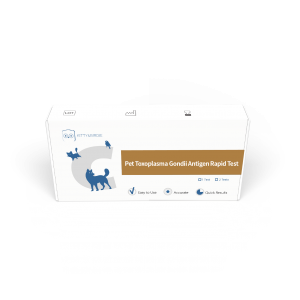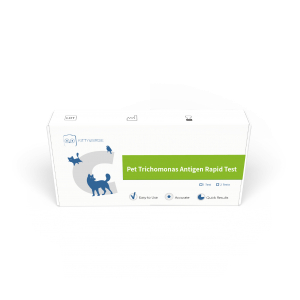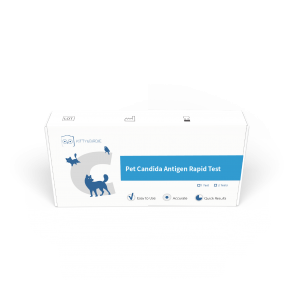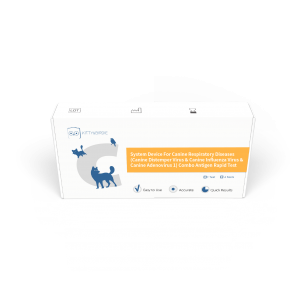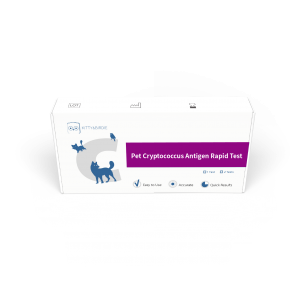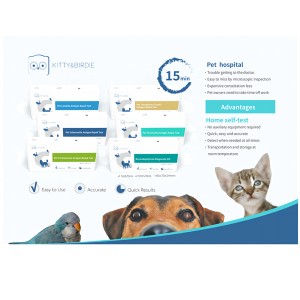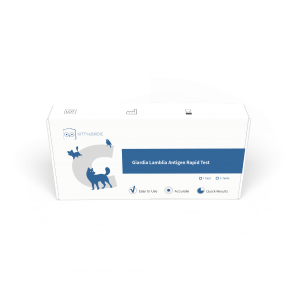Pet Toxoplasma Gondii Antigen Rapid Test
This product is used for rapid screening of pet dog and cat faecal samples for Toxoplasma gondii antigen and can be used as an aid in the diagnosis of Toxoplasma gondii infection.
Toxoplasma gondii mainly parasitises the epithelial cells of the small intestine of cats and other felines and excretes cysts in the faeces. Dogs and cats tend to be cryptically infected, and some show clinical signs or even die. Acute toxoplasmosis in cats is manifested by fever, which is often above 40°C, with arrested fever, sometimes with vomiting and diarrhoea. Chronic disease can be seen in atrophy and lethargy, anaemia, etc.; stillbirths and abortions can occur in pregnant cats. Canine toxoplasmosis is difficult to diagnose because of the lack of specific clinical signs and symptoms. Symptoms of canine toxoplasmosis are similar to canine distemper and canine infectious hepatitis, mainly manifested as fever, cough, anorexia, depression, weakness, eye and nasal discharge, pale mucous membranes, respiratory difficulties, and even violent haemorrhagic diarrhoea. Abortion or premature birth occurs in pregnant bitches, and the resulting litters often show symptoms such as loose stools, respiratory distress and movement disorders.
Toxoplasmosis is a zoonotic parasitic disease, and cats and dogs with toxoplasmosis are prone to miscarriage or preeclampsia if there is a pregnant woman in the home.
Common laboratory tests for Toxoplasma gondii mainly include serological examination: to determine whether the cat is infected with Toxoplasma gondii through the determination of specific antibodies in the serum, and common serological tests include enzyme-linked immunosorbent assay (ELISA) and agglutination test (AGT); tissue examination methods: the examination of tissue samples of cats to confirm the infection of Toxoplasma gondii, and commonly used ones include microscopic examination of tissue slices and immunohistochemical staining Polymerase Chain Reaction (PCR): to amplify and detect Toxoplasma gondii DNA by extracting DNA from blood, tissue or body fluid samples from cats and using specific primers and enzymes; Faecal testing: fecal samples from cats can be tested for the presence of Toxoplasma gondii oocysts. The current use of latex immunochromatography to detect Toxoplasma gondii antigens in faeces allows rapid screening for suspected Toxoplasma gondii infection.



